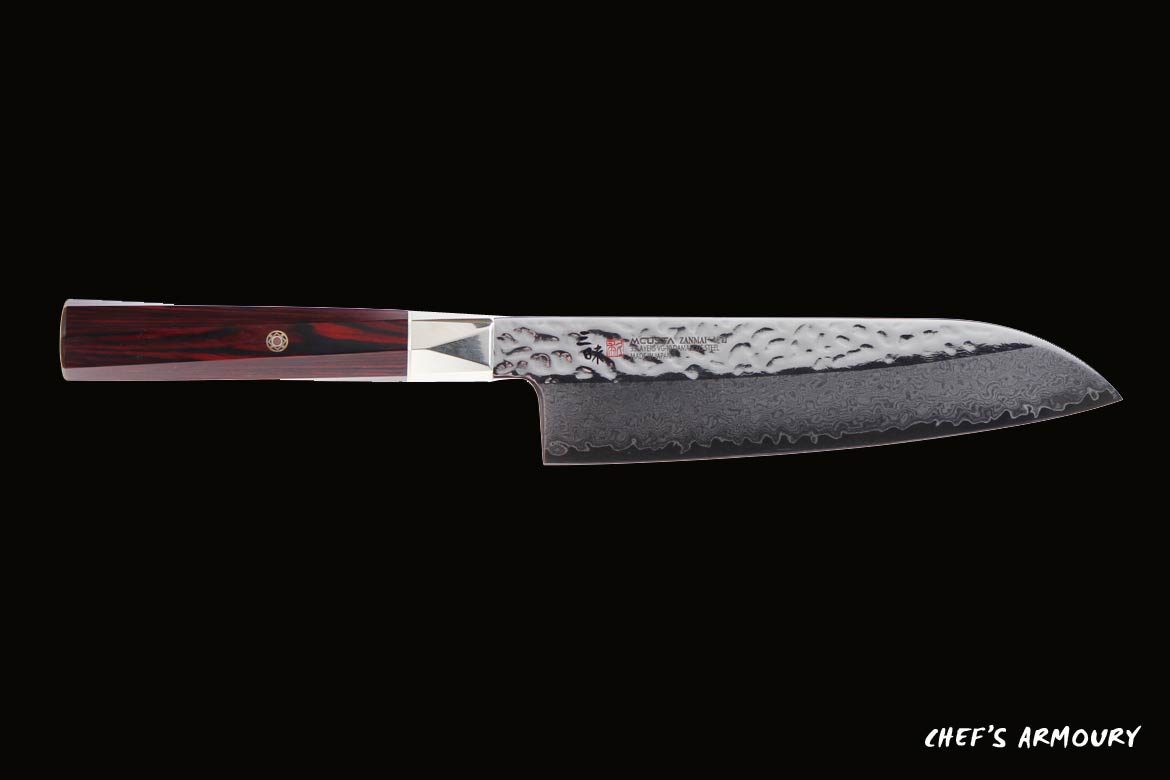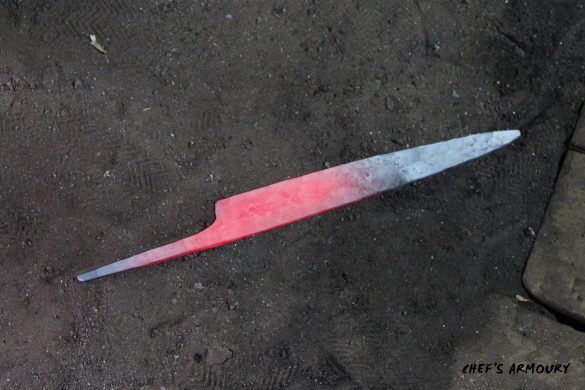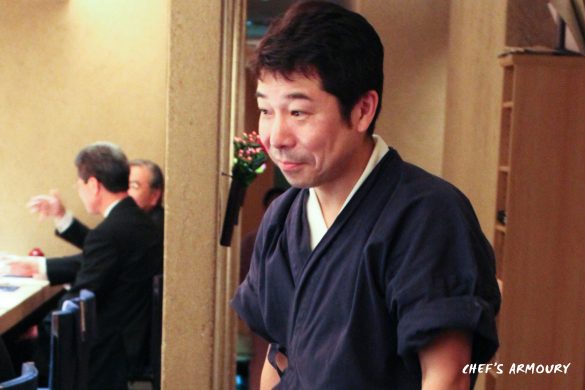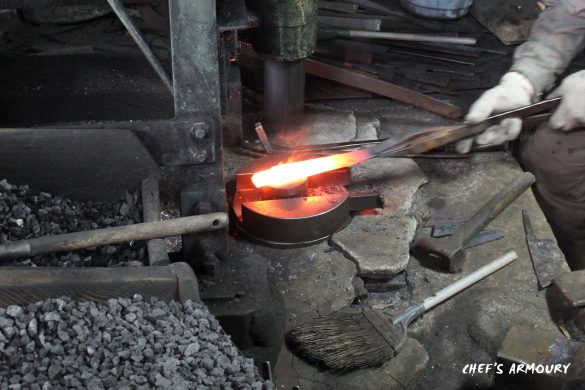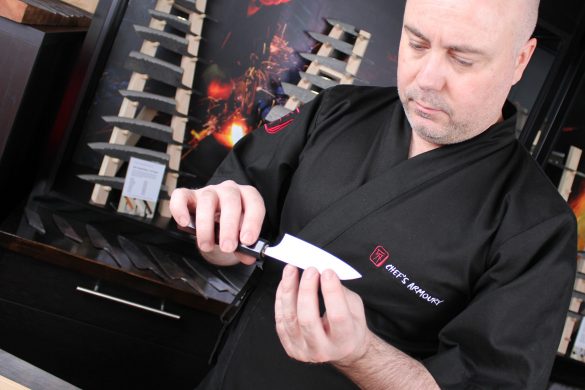At Chef’s Armoury we’re often asked, “What’s the best Japanese knife?”, to which the answer is: The knife that suits the task at hand.
Japanese knives can roughly be divided into two categories, traditional Japanese knives and western style Japanese knives.
Western Style Japanese Knives
While some of you may be familiar with these, there are a few terms that are often confused. Here’s a succinct reference guide to the most common Japanese knife terms.
Gyuto
The Gyuto is an adaptation of the European style cooks knife and comes in many styles. Gyuto translates as Beef Sword and is perfect for slicing. You will usually find gyuto’s 18 – 27cm long.
Santoku
The santoku has found its way into millions of western kitchens around the world. This multipurpose Japanese knife is generally 16-18cm long and has less of a rocking action than a chefs knife. It favours tasks like chopping and dicing vegetables.
Sujihiki
This is a very important style of knife for the Japanese chef. It has a longer blade usually 22 – 30cm and is perfectly shaped for slicing. Some Japanese chefs also like to use the sujihiki as a multipurpose blade.
Petty
A petty is a small utility knife generally 11-15cm. The word petty is a derivative of the French word petit – small.
Yo deba
This thick knife is shaped in between a gyuto and a deba (traditional filleting knife) with a hybrid or V bevel. It’s used for tougher work such as cutting pumpkins, fish and poultry bones.
All of the above are available in a variety of Japanese steels of varying hardness but tend to be thinner and sharper that their Euro cousins.
……..
Best Japanese Knives
The best western style Japanese knives available today have a special edge grind – a hybrid bevel that is almost flat on one side with a hamaguri or clamshell convex edge grind on the other.
This creates a uniquely right or left-handed blade that cuts much straighter, more accurately and with less effort than a simple V bevel. Only a handful of Japanese knife brands are producing this style of bevel. MCUSTA and Kaiden are excellent examples with this kind of special hybrid edge.

